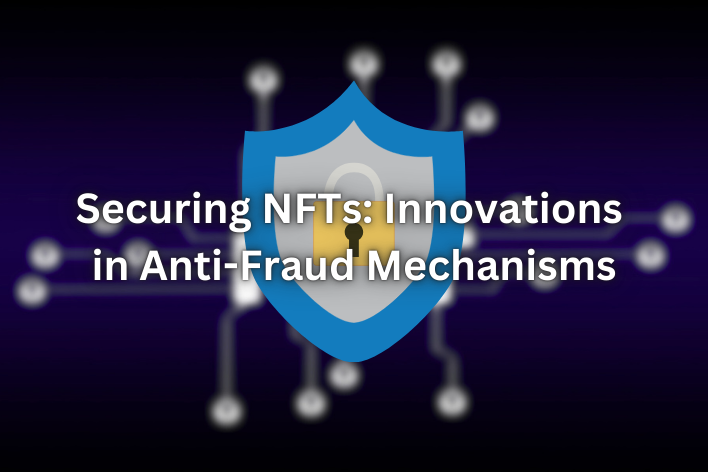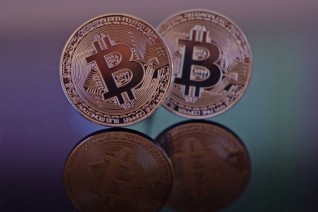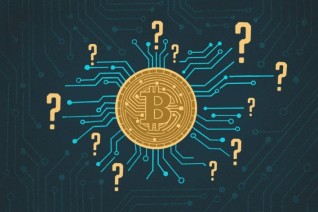Securing NFTs: Innovations in Anti-Fraud Mechanisms
Innovating Trust: How Cutting-Edge Anti-Fraud Mechanisms are Shaping the Future of NFTs
Introduction:
The NFT market has recently been plagued by a rise in fraudulent activities, threatening trust and transparency essential for its growth. Scams like rug pulls and fake auctions have undermined investor confidence, leading to a significant 54% drop in sales volume. With the market projected to surpass $3.3 billion and attract over 16 million users by 2028, addressing these security issues is crucial.
To secure the future of NFTs and foster mainstream adoption, innovative anti-fraud mechanisms are needed. In this blog, we’ll explore cutting-edge solutions designed to combat fraud and restore trust in the NFT ecosystem, ensuring a safer environment for all participants.
Current Challenges in the NFT Market
The NFT market faces substantial challenges due to a surge in fraudulent activities, which have significantly impacted investor confidence and market stability. Rug pull scams, where creators vanish with investors' funds after making enticing promises, have become alarmingly common. Notable examples include the "Evolved Apes" project, where creators disappeared with $2.7 million, and the "Frosties" NFT, which ended with the founders' arrest for fraud. Individual scams also persist, such as the case of Pranksy, a prominent NFT collector who was deceived out of over $300,000 by a fake auction purportedly linked to the artist Banksy. Research further underscores the severity of the issue; a study by the University of Texas and the University of California revealed that nearly 40% of analyzed NFT projects were fraudulent. This widespread deception has had a tangible impact, contributing to a dramatic 54% drop in NFT sales volume in May 2024. Addressing these issues is crucial for restoring trust and ensuring the market's future growth.
Innovative Anti-Fraud Mechanisms
To combat the rising tide of fraud in the NFT market, innovative anti-fraud mechanisms are essential for enhancing transparency and trust. One such solution is the ITHEUM Protocol’s Liveliness mechanism, designed to assess and promote the reliability of NFT creators. The Liveliness mechanism operates by requiring creators to bond ITHEUM tokens, which generates a dynamic Liveliness score. This score decreases over time, reflecting the duration of the bond and the creator’s ongoing commitment to the platform. A high Liveliness score signals trustworthiness to potential buyers. The Protocol Curation DAO plays a crucial role in this system by monitoring the ecosystem for malicious behavior and slashing bonds if necessary, thereby reinforcing accountability.
Additionally, Itheum introduces the NFMe ID Vault Data NFT, a unique asset that enhances credibility by allowing users to bond more ITHEUM tokens, further increasing their Liveliness score. This asset can be filled with various data sets, boosting its utility and relevance. To further incentivize participation, the BiTz XP system rewards users with experience points for engaging in activities such as purchases and community events. These points can be converted into ITHEUM tokens, which enhance Liveliness scores and promote active engagement within the ecosystem. These innovations collectively aim to build a more secure and trustworthy NFT market.
Impact and Future Outlook
The implementation of advanced anti-fraud mechanisms, such as Itheum’s Liveliness system, promises significant benefits for the NFT market. These solutions enhance stability by creating a more secure environment, foster growth by rebuilding trust among investors, and promote transparency by clearly signaling the credibility of creators. As the NFT market adapts to these innovations, it will likely experience a resurgence in investor confidence and activity. Furthermore, the success of such mechanisms could set a transformative precedent for the broader NFT industry and other digital asset markets. By establishing robust models for fraud prevention and trust-building, these innovations have the potential to influence the development of similar systems across various sectors, driving a shift towards more secure and reliable digital transactions globally.
Conclusion:
As the NFT market continues to evolve, the implementation of innovative anti-fraud mechanisms is crucial for maintaining security and fostering trust. Solutions like Itheum’s Liveliness system and additional tools such as NFMe ID Vault Data NFTs and BiTz XP play a pivotal role in safeguarding the ecosystem against fraudulent activities and enhancing transparency. These advancements are not only vital for stabilizing the market but also for encouraging widespread adoption and confidence in digital assets. As these mechanisms gain traction, they may set important precedents for the broader NFT and digital asset markets. We encourage readers to stay informed about these developments and consider how such innovations can impact their own NFT interactions. Embracing and supporting these changes will help ensure a safer and more reliable environment for all participants in the NFT space.





